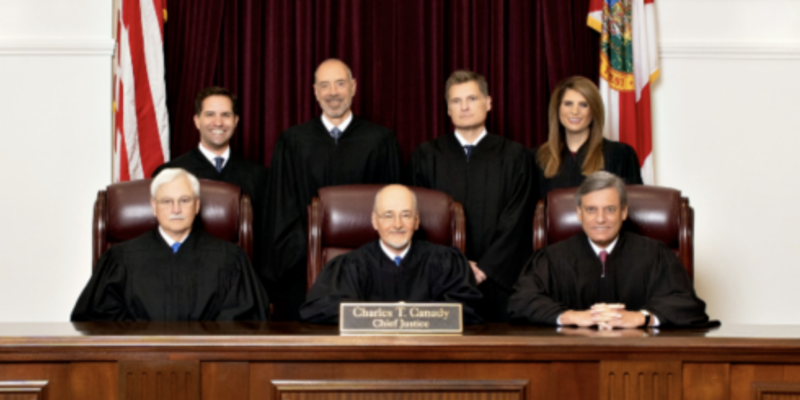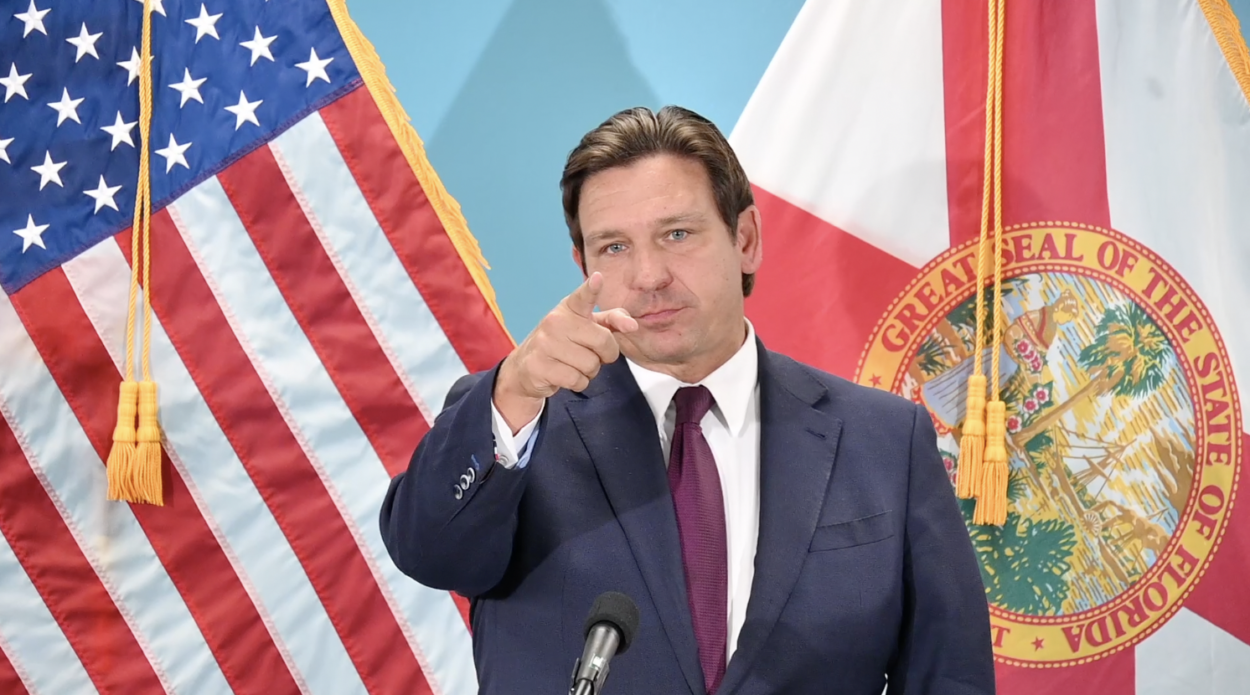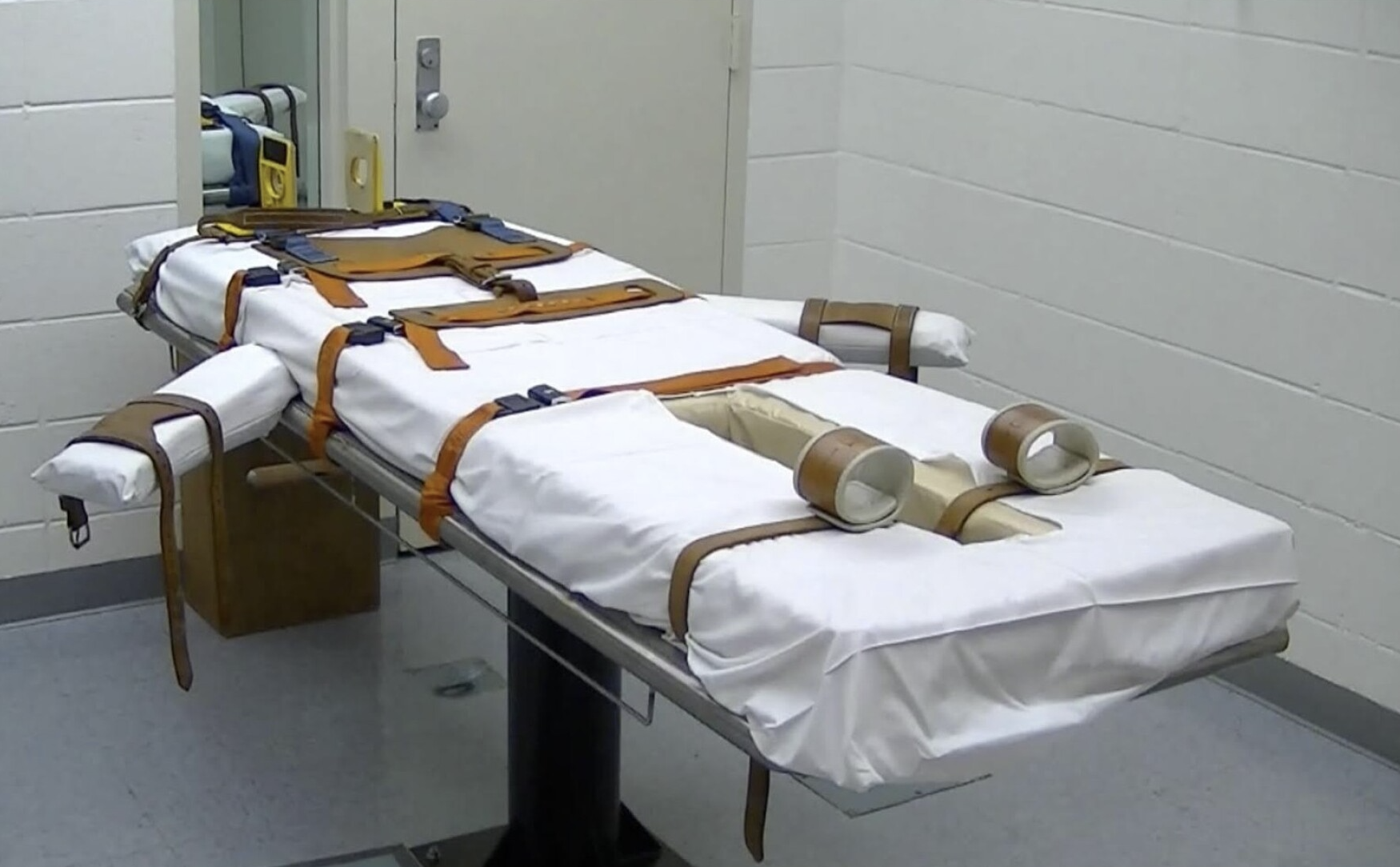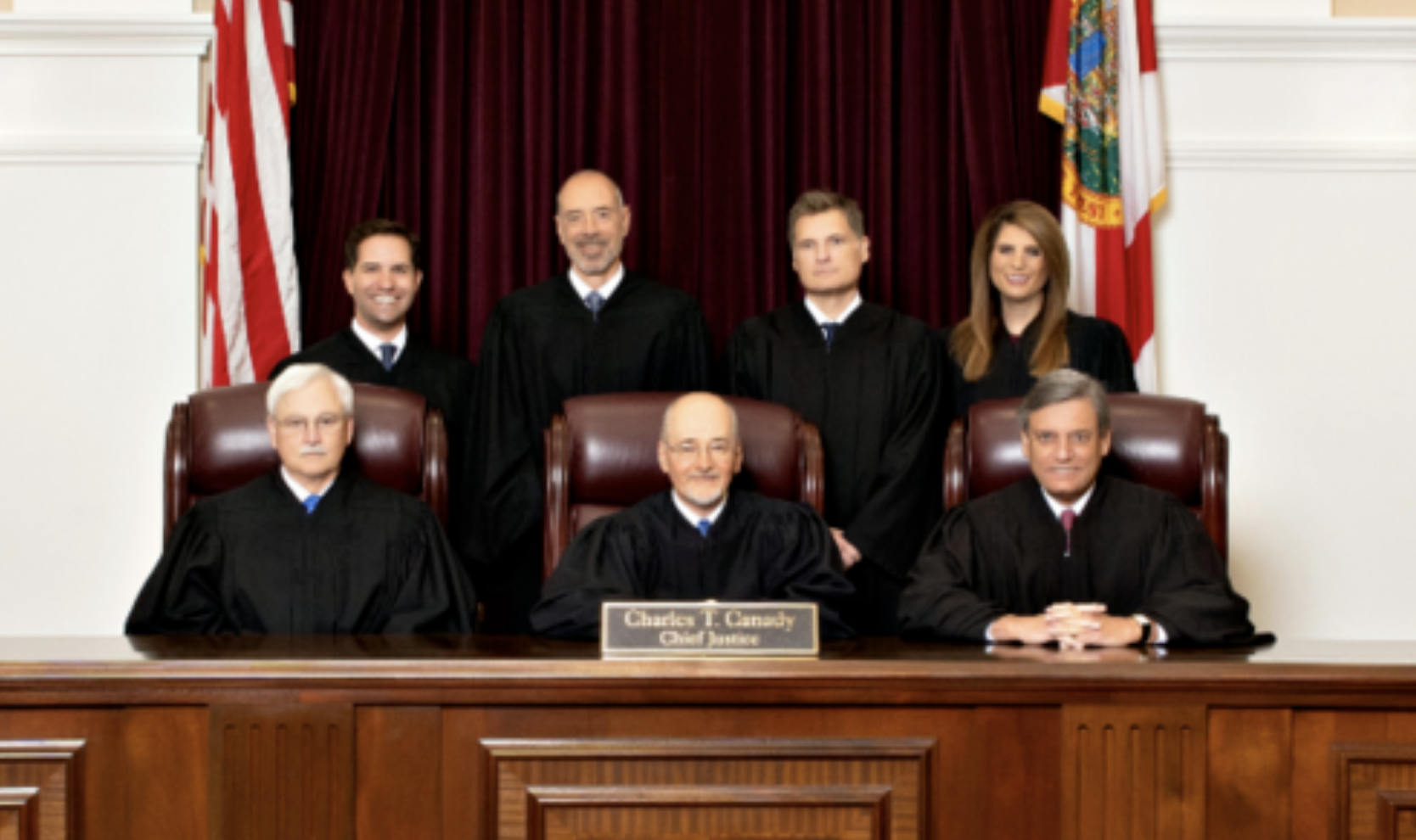TALLAHASSEE, FL—The Florida Supreme Court has solved the years-long debate over the definition of "riot" in Governor Ron DeSantis' controversially monikered "anti-riot" law, deciding that people who are present at a violent protest—but don't participate in the violence—cannot be charged as rioters.
In other words, they're taking the Governor's side—at least in terms of his argued definition.
"A peaceful protestor, under the most natural reading of the statute, is no rioter," the opinion, released Thursday morning, reads. "We agree [with the Governor's definition]."
The case will return to the U.S. Court of Appeals for the Eleventh Circuit, which ruled that the constitutionality of DeSantis' law depends on its definition of "riot", one that critics alleged was too ambiguous. They posed this question to the high court, asking, can a person simply at the riot scene be charged under the 2021 law?
Justices said no.
Soon after the "anti-riot" law was signed into law—pushed by Republicans in the wake of the George Floyd protests—plaintiffs, the non-profit group Dream Defenders, argued it was too ambiguous, vague, and unconstitutional. The district court agreed and promptly blocked the law.
So, DeSantis and his team appealed to the Eleventh Circuit, which waited for the state Supreme Court's decision on the "riot" definition. And decide they did:
"Where lawyers seek ambiguity, there often is it found," the court stated, before quoting U.S. Supreme Court Justice Brett Kavanaugh. “'As lawyers, we are indoctrinated from the first days of law school to find ambiguity in even the clearest of pronouncements...'"
"But read as a typical reader of the English language would read it...the statute at issue here is not ambiguous but reveals one best reading," the ruling continued, believing the law to be clear and concise in its definition of "riot". They explained that as stated in the statute, a person cannot "willfully participate" in a "violent public disturbance"—the historical definition of riot—without engaging in "violent and disorderly conduct."
Simply put, if a person in a riot is not creating a violent or disorderly environment, they cannot be subject to DeSantis' anti-riot law, which classifies "mob intimidation" as a first-degree misdemeanor and a "riot" as a second-degree felony.
Of the seven justices, all agreed that "riot" as defined in the contested statute is not unconstitutional, and will not result in innocent protesters suffering hefty penalties. However, while Justice Jorge Labarga agreed with the "bottom line" of the majority's finding, he agreed with the plaintiffs that portions of the law are ambiguous.
Despite this, he says, he must abide by the rule of lenity, which states, "when the language is susceptible of differing constructions, it shall be construed most favorably to the accused," which, in this case, is the DeSantis administration.










